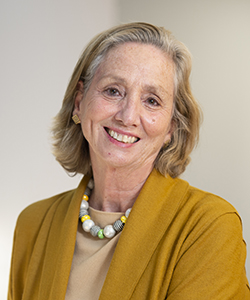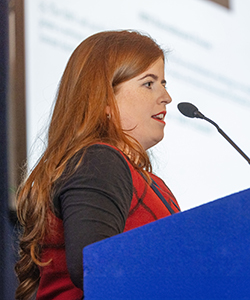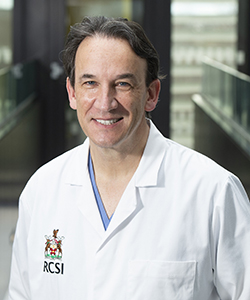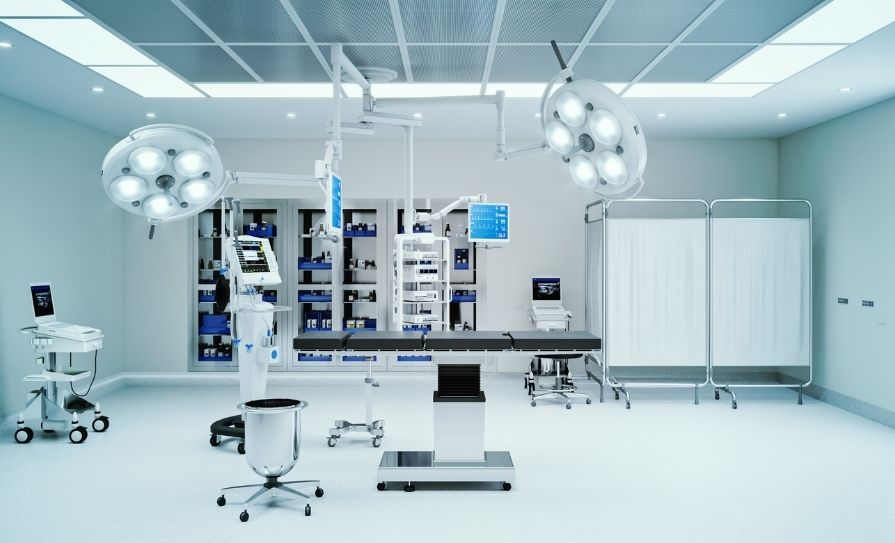In April, Minister for Health Stephen Donnelly reiterated his support for a role for physician associates in Irish healthcare. Catherine Reilly reports on recent developments
The Department of Health is reviewing an application from the HSE to recognise the grade of physician associate (PA), the Medical Independent (MI) has learned.
According to the HSE, “challenges and learnings” from other jurisdictions are being considered to ensure the grade improves the overall patient experience and patient safety.
PAs are trained in the medical model and work as part of a multidisciplinary team under consultant or GP supervision. The RCSI, which commenced an MSc in Physician Associate Studies in 2016, states: “PAs support doctors and surgeons in the diagnosis and management of patients and are trained to perform several roles, including taking medical histories, performing examinations, making diagnoses, and analysing test results.”
According to the Irish Society of Physician Associates (ISPA), PAs operate under delegated autonomy. “This means that while PAs have the authority to make clinical decisions within the parameters set by their supervising clinician, they work under the clinician’s guidance and oversight.”
The ISPA website clearly states that PAs work under doctor supervision, but uses some phraseology that may cause confusion – PAs are described as highly-skilled “medical professionals” who “practice medicine” in a wide variety of settings.
Several supervising consultants have spoken to MI about the PA role since its introduction to Ireland and have reflected positively on their contribution to healthcare teams (see panel below).
To date, 76 PAs have graduated from the RCSI’s two-year programme and most are working in Ireland (there are also a small number of overseas-qualified PAs employed here). Around two-thirds of PAs are working in the public sector, principally in hospital settings.
Public employers include Beaumont Hospital, Dublin; Our Lady’s Hospital, Navan; Letterkenny University Hospital; and the Rotunda Hospital, Dublin.
The RCSI programme is the only one of its kind in the Republic of Ireland, but this may change in the future. The UK has seen a proliferation of courses – which has raised quality concerns.

Entrants to the “fast-paced” RCSI programme require a health science or science-related degree and this condition is strictly enforced, according to the Course Director Prof Lisa Alexander. Course fees are approximately €12,000 per annum.
This year, the HSE has provided funding for student fees in return for their service commitment following graduation. All 29 students in first year will provide a three-year service commitment to the HSE in return for their fees being covered for the course duration. Seven of the second years have had their fees covered for one year and will provide a service commitment of two years.
At the IMO AGM in April, responding to a query from MI, Minister for Health Stephen Donnelly reiterated his support for the PA role. He said it was important to ensure “there is very clear oversight and clinical governance in place from a patient safety perspective”.
At the meeting, the IMO conveyed significant misgivings. Six motions were passed relating to role clarity, governance, impact on doctor training and employment, and choice of regulator (which should not be the Medical Council, according to the IMO).
The Organisation called on the HSE to “issue instructions to all HSE-funded healthcare settings advising that physician assistants/associates cannot be used to cover doctors’ shifts or rotas”. NCHD Chair Dr Rachel McNamara told the meeting of a report received by the IMO about a hospital that rostered a PA on a senior house officer on-call weekend shift.
Earlier this month, an IMO spokesperson said it had met with the HSE in relation to a guidance document on PA employment and is “currently engaged in providing submissions on the issue”.
“The IMO is strongly of the view that in order for PAs to be part of the workforce within the HSE it is critical that we learn from the UK experience along with addressing issues around governance and regulation, patient safety, impact on consultant workload, potential negative impact on NCHD training and scope of practice for PAs.”
“Following a recommendation from the IMO, the HSE is pausing all further recruitment of PAs until the guidance document is finalised. The IMO will continue to engage with the HSE.”
Dr McNamara told MI the Organisation agrees there is a place for PAs. However, a PA “can never and should never” be used as a substitute for a doctor. She said the title ‘physician associate’ is also liable to cause confusion.
The incident she referenced at the AGM – of a PA rostered onto an on-call medical rota – is the only such case that Dr McNamara is aware of to date.
She told MI there are two main aspects to NCHDs’ concerns about the PA role: Patient safety and impact on training.

Dr McNamara outlined that PAs begin employment after two years of training. This contrasts with the much longer period of medical degree programmes (four-to-six years) which is followed by a structured intern year.
“For a junior doctor, the way I can identify an abnormal result or abnormal finding on a clinical exam is by seeing 100 normal ones…. You get that exposure over time, and it is all about gaining that experience, and yet there is this very much expedited programme to enable physician associates to be placed into certain roles and carry out tasks that can be traditionally seen as doctor or nursing related tasks, without significant regulation and oversight. It is hugely risky for patients and that is the first stream of why this is an issue.”
She said the IMO acknowledged there is “value in having a supportive grade that can assist with a very set number of predefined tasks”.
However, there are serious concerns about any proposed role for PAs in areas such as management of undifferentiated patients. Dr McNamara said the safe and effective management of undifferentiated patients – ie, patients presenting to general practice and emergency departments – entails years of training
and experience.
“It would be extremely concerning to see those sorts of tasks and roles treated in a way where they could be managed by somebody who hasn’t gone through that level of training and time span
of experience.”
Dr McNamara said invariably NCHDs will be asked to supervise PAs on the wards. “It is aspirational to think there’ll always be a consultant available to physician associates when they are working.”
She noted that a very diverse range and complexity of skills have been associated with PAs. “That is going to cause confusion,” she said. “Where do you draw the line? After how many years would you expect somebody to be at a certain level?”
Another concern for NCHDs is the existing deficit of consultants and protected trainer time.
“From definitions and workflows I have seen, physician associates have to be either directly or indirectly supervised by the consultant at all times, and that can only detract from the amount of time the consultant has to supervise and train their NCHDs,” she said. “It is human nature that if you have a physician associate with you on a team… they are likely to become more au fait with the practices of that team and more likely to become more of a ‘productive asset’ for a consultant because they are going to get very familiar with how they work and operate… but an NCHD coming in for three or six months is going to have to fight for that time and those procedural-type activities… to be able to do them under the supervision of the consultant.”
Dr McNamara added: “We just have to be very careful. It is very hard to undo something when it has been rolled out.”
HSE
The HSE’s response to MI made no reference to a pause on recruitment. The Executive’s preparations to date include the development of a guidance document outlining clinical governance structures. This document will provide guidance in relation to education and regulation, supervision requirements and scope of practice. “The deliberations around the future regulator for this role are still ongoing.”
The HSE spokesperson noted that PAs are currently prohibited from ordering ionising radiation and prescribing medications. Clinical sites will be required to ensure PA posts do not compromise NCHD training, they stated.
The Department of Health (which referred to “physician associates/assistants”) said a review of the role by the NCHD taskforce demonstrated a high level of support and strong potential for PAs to support NCHDs. The review concluded that further development of the structure and scope of practice is required.
The Department said many issues needed to be considered before any grade could be introduced. These included, for example, regulatory requirements, indemnity issues, responsibilities, clinical governance, benchmarking of a proposed salary, conditions of employment, and any industrial relations issues.
UK
PAs have been deployed successfully in North America and other jurisdictions. However, the profession has been the focus of recent controversy in the UK.
Medical organisations have highlighted findings of insufficient supervision and inappropriate deployment. In the UK, the government’s decision to appoint the General Medical Council as the PA regulator (due to commence later this year) has caused disquiet in these organisations. A number of patient safety incidents have also been reported in the media.
Advocates for PAs say they have become a lightning rod for wider discontent in a beleaguered NHS and particularly in the context of plans to significantly grow the profession.
Without question, some of the debate surrounding PAs in the UK has deteriorated into abuse, especially on ‘X’ (formerly Twitter).
Immediate past-President of the ISPA, Ms Aoife Sartini-Bhreathnach, told MI PA graduates and students in Ireland have continued to enjoy good relationships within healthcare teams.
“We are quite aware of [the issues in the UK] because we are obviously keeping up-to-date with what is happening. We have linked in with students and graduates and there has been nothing in particular that has changed in their roles or how people view them on placements.”
ISPA board member Ms Alexandra Troy echoed these remarks. Ms Sartini-Bhreathnach and Ms Troy also said they were not aware of instances of PAs in Ireland working outside their competence or without appropriate supervision.
Ms Troy said that PAs work under a supervising clinician and there has been considerable guidance provided by GPs and consultants.
Ms Sartini-Bhreathnach noted: “In a public hospital you are going to have interns, SHOs, regs, your supervising consultant around you, and so it doesn’t really happen where you have a situation where you are completely on your own.”
The ISPA was founded in 2019 and aims to provide professional support to PAs working in Ireland. The Society maintains a close relationship with the RCSI.
The ISPA has been advocating for formal recognition, regulation, and access to continuing professional development (CPD). Ms Sartini-Bhreathnach said they view the Irish Medical Council as the most suitable regulator.
Ms Sartini-Bhreathnach said the ISPA has been received positively in meetings with the HSE and Department of Health. The Society emphasises the continuity of care PAs can provide in the public setting – which it says is particularly beneficial during NCHD changeovers.
The ISPA has also maintained that PAs can help facilitate – rather than impinge upon – NCHD training opportunities.
A voluntary registration structure has been instigated. The ISPA operates a managed voluntary register (MVR) and encourages employers to check that a PA is registered. To gain entry onto the MVR, qualified PAs are required to sit a national exam (consisting of 200 “multiple choice, single best answer questions”) and re-sit the exam every six years. They must maintain 50 CPD points annually.
The RCSI department of surgical affairs has provided access to CPD courses, although preference is given to NCHDs. The ISPA hopes that, in the future, access to CPD courses may also be available through other medical bodies.
The overall progress may be perceived as slow, said Ms Sartini-Bhreathnach, but this is preferable to a rapid roll-out of the profession.
“In the UK they developed so many courses over a short period of time. We are not looking to do a massive expansion overnight… we want to take everything slow because we want to do it right and we want to make sure everyone is on board.”
Future
Prof Alexander was a prominent PA educator in the US before taking on her current position in late 2020. She says the course is rigorous and she is proud of the quality of its graduates.
Prof Alexander said the HSE’s funding for current students followed advocacy by the RCSI. It emphasised to the HSE that PAs could be part of elective care teams and enhance patient access
Plans to involve PAs in the workforce for the new surgical hubs were referenced by the then Director of Acute Hospitals, Prof Mary Day, at the inaugural ISPA annual conference last October.
We are not substituting for doctors, I really cannot emphasise that enough
About half of the first-year group at RCSI are based outside Dublin and undertaking a hybrid version of the programme, and this was of interest to
the HSE.
“We are really growing the profession outside of Dublin,” said Prof Alexander. “And the Hospital Groups – especially the ones that have a fair number of model 3 hospitals – have trouble recruiting. So they are interested in looking at new workforce models and one of them is by integrating a PA onto the medical or surgical team and again… we are not substituting for doctors, I really cannot emphasise that enough.”
As PAs become more experienced, how is it ensured they do not overreach their boundaries?
“I think we do a really good job of helping PAs not only in their identity formation – in how they start to see themselves – but we do an extremely good job of putting scenarios out in front of them and helping them develop the confidence to know where the line is and how you do not cross it.”
Doctors with a PA: What they say
Physician associates (PAs) are “an integral part of the future of healthcare”, Consultant General and Breast Surgeon Prof Arnold Hill told an RCSI webinar on best practice in recruiting PAs.

Prof Hill, who is Dean of Medical Programmes and Professor and Chair of Surgery at RCSI, told the webinar in 2021 he was fortunate to have been the first clinician in Ireland to have a PA. He said that, during the Covid-19 crisis, PAs had been “transformative because they are multi-purpose, multi-functional, incredibly helpful, talented healthcare professionals…. They have been integral and now are a part of the teams at Beaumont Hospital in neurosurgery, vascular, breast, colorectal, and ENT. None of us could survive without them.”
Earlier this year, St Vincent’s University Hospital (SVUH) in Dublin appointed its first two PAs who commenced in the medical oncology and breast cancer care services.
Prof Michaela Higgins, Consultant Medical Oncologist at SVUH, told Medical Independent (MI) the experience to date has been positive.
“As a group, we made the decision to use the salary previously designated for an NCHD to support our first PA instead. Our decision came on a background of increasing difficulty with recruitment of high-quality NCHDs to our service which is due to many factors including: Outside perception of our specialty being very intense and academically challenging, increasing numbers of SHOs travelling and staying abroad, and cost of living/accommodation challenges in south county Dublin. We were fortunate to be in a position to hire a second PA this summer.”
Prof Higgins agreed that supervision does require some extra time and commitment from the consultant body. “But we see this as a worthwhile long-term investment as these individuals have the potential to be a great benefit and support for our patients and team for many years to come. Our PAs are becoming familiar with routine oncology admissions, chemotherapy toxicities, and management of cancer and/or treatment-induced complications. They are a very useful and constant team member to have on the oncology day ward or inpatient unit.”
She did not believe the addition of the PAs had negatively impacted trainees. “We provide regular teaching to our full multidisciplinary team several times a week,” she stated.
Speaking to MI in 2022, Dr Malik Anwar, Consultant Gastroenterologist and General Physician at Our Lady’s Hospital in Navan, emphasised the continuity of care provided by PAs. “They are part of the team on a longer basis as compared with the SHOs who might be with you for three months.”
He noted that a clinical nurse specialist, for example, worked in a particular area in the hospital caring for specific types of patients. He said a PA’s role was more “diverse”.
“I feel it is much more like a non-consultant hospital doctor in many ways and if they are allocated to a particular service for a long duration then they become very familiar with the conditions that we routinely deal with.”













Leave a Reply
You must be logged in to post a comment.